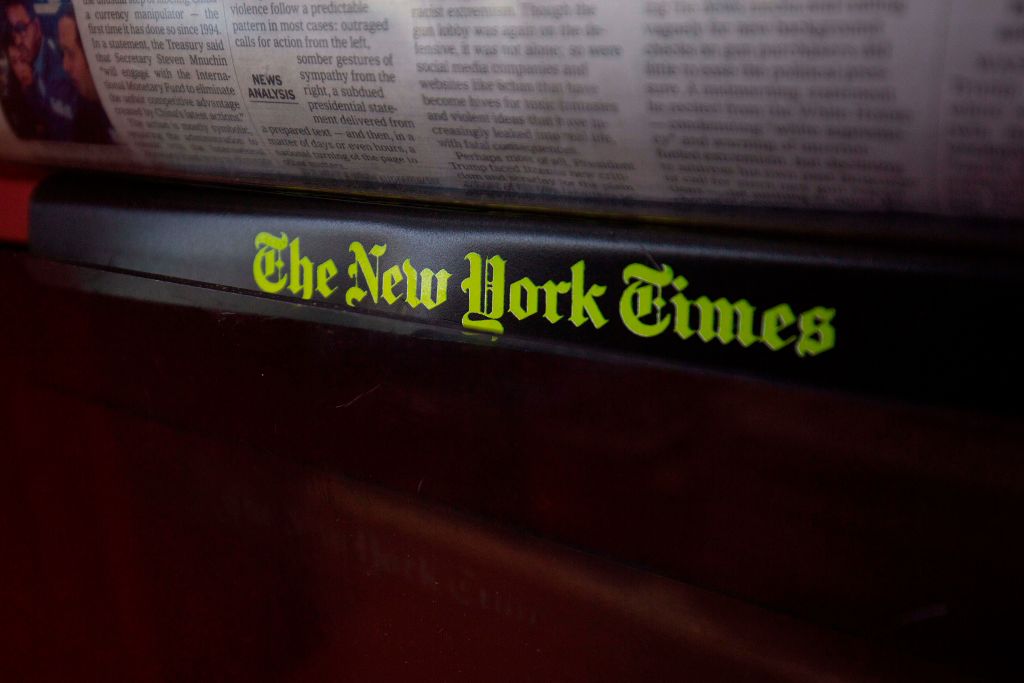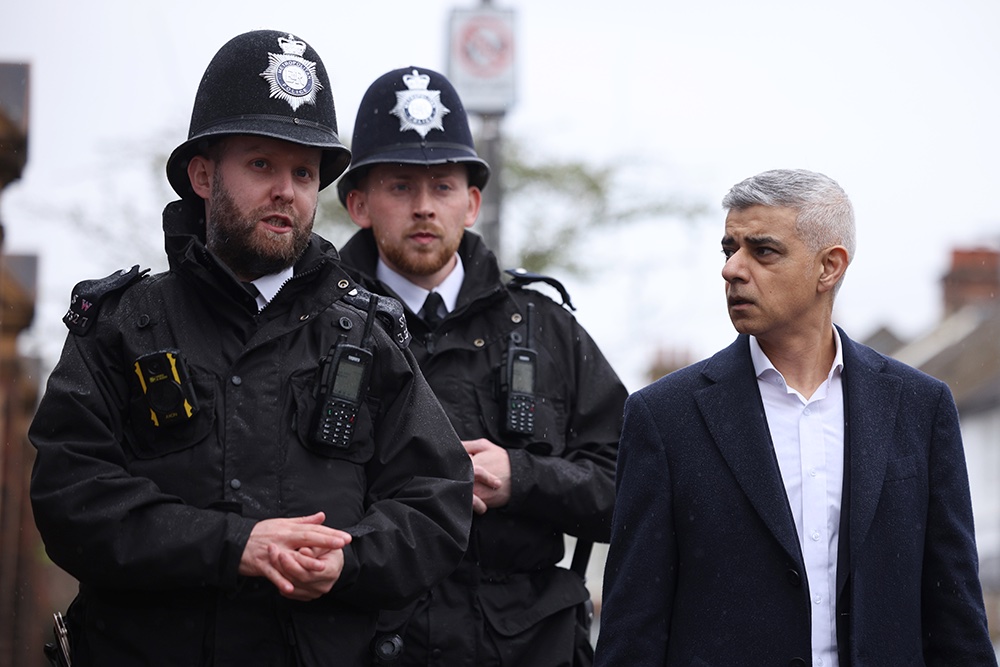Of course most people don’t read the New York Times. But the paper retains a certain cache in America, and undoubtedly directs a lot of public thinking in that country, if not further afield. Which is why the Gray Lady’s anti-British animus (which has been noted here before) is worth highlighting.
The trend has been going on since 2016, when the NYT seemed to have decided that the Brexit vote led the way for the election of Donald Trump. Since then the paper’s desire to attack Britain has appeared insatiable; a fact that leads their readers to be woefully ill-informed about the country. I for one have been fairly regularly struck by the number of otherwise intelligent and subtle Americans I know who seem to think that Boris Johnson is (at best) President Trump’s evil twin and (at worst) a demagogic populist on a par with the great dictators. Invariably the cause is the NYT.
In the last month, there have been some especially fine examples for those of us who retain a morbid interest in the paper’s anti-British obsession. Especially its desire to draft in anyone at all (even if they are wholly obscure) just so long as the hired help does the necessary hit job on the UK.
During the middle of last month the paper ran a piece by a Guardian contributor whose specialism appears to be the Middle East. Rachel Shabi’s piece certainly seemed to be written by someone whose understanding lies elsewhere; her attempt to guide the American left through the UK reaction to the coronavirus was fantastically inept. It consisted primarily of an attack on the UK press for focusing on the health of the Prime Minister (then just out of intensive care) rather than haranguing the government for not having the foresight afforded to the average Guardian contributor. ‘People are dying and all Britain can talk about is Boris Johnson’ was the headline the NYT gave the piece. A headline which might be very easily answered by a statement such as: ‘that is because he is the Prime Minister, and he almost died.’ But in Britain our Prime Minister cannot even go into intensive care without it providing fresh cudgels for the NYT to beat Britain with.
A couple of weeks later and the NYT had drafted in Jenni Russell from the Times of London to write a piece whose headline read: ‘The UK needs a real government, not Boris Johnson’s puppet cabinet’.
Why is the current government not a ‘real government’, you might ask? The answer being, because Ms Russell does not like it. And once you dislike a government this much, almost any action or motivation can be attributed to it. As the NYT’s headline writers went on to put it (summing up Ms Russell’s argument) ‘The prime minister has set his government up to fail. We can’t afford that right now.’ Why would the Prime Minister have deliberately chosen his cabinet to fail? How did Ms Russell know this? Was it just a guess? It was never quite made clear. But for the NYT such a piece clearly does the necessary job — allowing their readers to continue to labor under the belief that there is nothing so malevolent that a British PM would not do it.
Now the NYT has covered the latest UK lockdown announcements in the same spirit of malice and misrepresentation. Its report on the Prime Minister’s Sunday evening address is headlined ‘Bafflement greets Boris Johnson’s plan for reopening Britain.’
Where is the evidence of this ‘bafflement’? Who are the critics referred to in the ensuing sub-heading? Well one of them is a man called ‘Keir Starmer’. Even with the NYT’s current level of insight into British politics you might have expected them to know that the Leader of the Opposition could be expected to oppose.
But that is not all. The NYT’s intrepid reporters are able to point to other opponents of the Prime Minister’s announcement. There is, for instance, a woman called Nicola Sturgeon, whose support of a Conservative PM in Westminster could ordinarily surely be relied upon? Will the criticism never end? The paper even ends up falling back on a headline in MailOnline to ‘prove’ its case.
I wonder if the NYT will ever try to balance out this coverage, informing its readers in such a way that they get a full picture of Britain in the 21st century? I suspect not. But when people refer to ‘biased media’ and news organizations which appear to deliberately mislead their consumers, know that the NYT and its coverage of Britain is just the sort of thing we are talking about.
This article was originally published on The Spectator’s UK website.

























